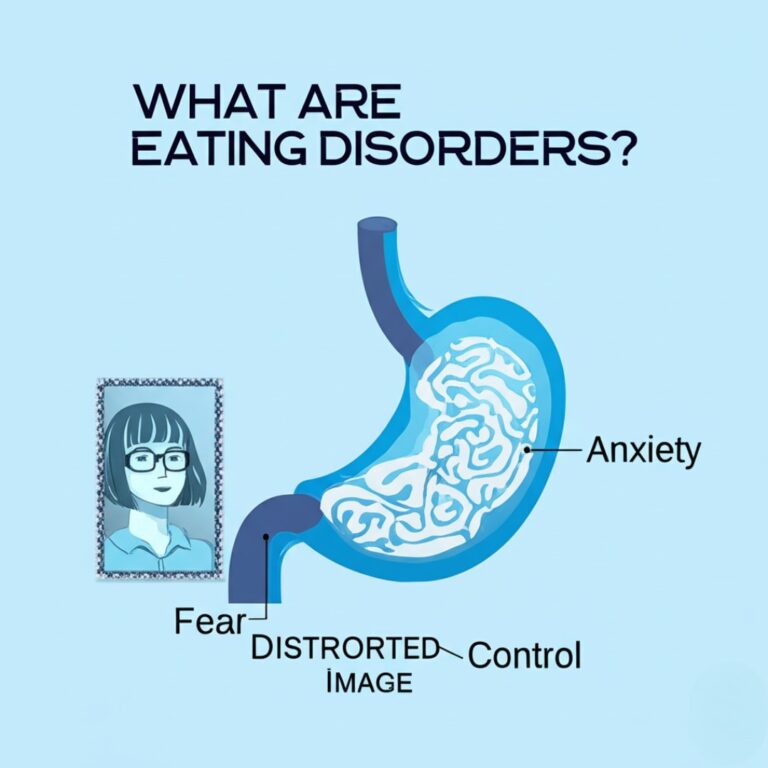Mental health education is, basically, universal in nurturing the well-being of students throughout the U.S. Increasingly, students are under the impact of academic pressure, social difficulties, and personal challenges, all of which can lead to mental health problems like anxiety, depression, and stress-related disorders. The schools and universities these days are beginning to realize and stress that there should be a proper structure of mental health programs to really support their students.
The importance of mental health education, the benefits offered through mental health programs for students, and their effect on certain sections of society towards a healthier tomorrow for the younger generation are the core areas described in this blog.
The Importance of Mental Health Education
The mental health educational inclusion has become pertinent in the fast-paced and high-pressure environment of today’s academic institutions. It equips the students to identify the ill-effects of mental health, seek help when required, and build resistance against stress. Here’s the best part about mental health education:
1. Reducing Stigma Around Mental Health
This evil prevents the mental health of many individuals. Mental health education could, however, be introduced in schools to help students understand how to handle affairs that bring up stress, anxiety, fears, or judgments.
2. Encouraging Early Intervention
At any point in life, mental health problems could surface, but many times, it develops during youth or childhood. Early mental health intervention through educational programs enables students to understand the signs of problems and to consult an adult for assistance before situations deteriorate.
3. Promoting Emotional Resilience
This well-graded structure in case of students is that: their education will give them chances to develop ways of dealing with their stress-anxiety-depression boat while building emotional resilience and improving their ability to cope with life’s challenges.
4. Enhancing Academic Performance
Mental well-being of students directly impacts how well they perform educationally. It makes the students feel stressed, anxious, and mentally unfit, instead of giving them the benefit of the doubt. Subsequently, they might manifest factors like poor concentration, lowered motivation, and decreased output. Through mental health awareness, students can be able to know what kind of support they need for their academic benefits.
Why Are Student Mental Health Programs So Valuable?
Due to the various benefits brought by mental health programs, there has been an increase in funding by schools and universities for mental health programs for students. Here are reasons why it is a necessity:
1. Providing Access to Professional Support
Some students seldom ask for help because they dont know whom to approach or are afraid of being judged.Mental health programs exist in schools and colleges to aid students in effecting changes in their mental thinking and behavioral patterns through the provision of counseling workshops and wellness resources that offer faClaimed by easy all the professional help required.
2. Addressing the Unique Challenges of Students
Students can have a number of challenges including the stress experienced in academics, peer pressure, and social pressure as a result of trickery. In this regard, mental health programs become a forum providing assistance to address these specific needs and delivering coping mechanisms.
3. Creating a Safe and Supportive Environment
When educational institutions and the universities concern mental health, it delivers a message that promotes openness and nurtures issues at a time when one feels the need to seek assistance or support from others in times of crises.
4. Preventing Mental Health Crises
Without an adequate support system, minor mental health problems can progress to severe crises. Mental health programs can prevent these situations through early intervention and consistent follow-up treatment.
Mental Health Education and Specific Demographics
Mental health education impacts different demographics in various ways. Below is an analysis of how it benefits distinct student groups in the U.S.
1. Elementary and Middle School Students
- Helps young students to understand emotions and how to express them.
- Encourages healthy coping mechanisms against stress and anxiety.
- Bullying will be prevented while fostering kindness in peers.
- Emotional awareness targeted to navigate adolescence well.
2. High School Students
- This is all about stress-management teaching, which consent with academic stress.
- Discuss openly issues on depression, anxiety, and prevention of self-harm.
- Independently living is cultivated through instilling self-care habits.
- This helps in identifying students at risk and extends any interventions that they may need.
3. College and University Students
- Addresses increased stress from coursework, finances, and career uncertainty..
- Counseling and mental health resources offer independent decision making.
- Creates a sense of community and peer support groups for mental wellness.
- To help international and minority students with cultural and social transitions.
4. Students from Marginalized Communities
- There is specially tailored support for students dealing with racial, economic, and sociocultural challenges.
- Offers spaces in which LGBTQ+ students can openly discuss mental health concerns.
- Ensures mental health education is inclusive and addresses unique struggles.
5. Students with Disabilities and Special Needs
- Facilitates personalized mental wellness support according to individual needs.
- Facilitates personalized mental wellness support according to individual needs.
- Aids parents and caregivers in understanding mental wellness as an integral part of overall development.
Implementing Effective Mental Health Education Programs
Hypothetically speaking, all possible impediments could be eliminated.
1. Integrating Mental Health into Curriculums
Mental health education must be made a compulsory topic in health and wellness courses so that every pupil gets geared towards the learning of emotional wellness.
2. Training Teachers and Staff
In the students’ mental health area, the educators provide a very important link between early recognition and appropriate intervention regarding mental health problems. Educators who are properly trained will be able to recognize the warning signs and provide guidance to avert an impending crisis.
3. Providing On-Campus Counseling Services
Schools provide licensed mental health professionals so that their students can gain access to help immediately, whenever necessary.
4. Encouraging Peer Support Groups
The group provides units for anti-education. This circumstance gives them a relaxed atmosphere.
5. Organizing Mental Health Awareness Campaigns
A regular schedule of mental health workshops, webinars, and events keeps the conversation alive and ensures that students are ever conscious of the resources available for them.
Conclusion
Mental health education really plays a vital role in the success and well-being of students. Schools and colleges throughout America will have to install organized programs for mental health within the institutions according to the different communities required to develop the most appropriate supports and resources. More essentially, by involving in mental health awareness, having educational programs, and stigmatizing the mental health issues, everybody concerned would make the campus healthier and more supportive for every student.
Stay updated with the latest discussions on student mental health programs at the Discuss Forum, where we bring insights and resources for mental well-being in education.








